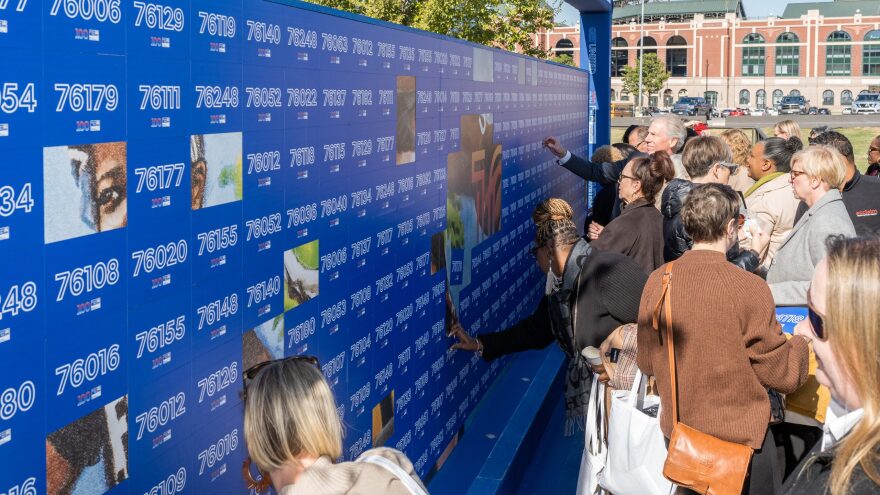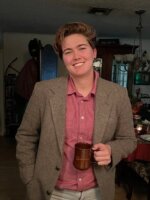The Arlington Tomorrow Foundation, a public charity created from the financial windfall of gas well drilling on city property, will fund the 18-month study.
The foundation, which launched in 2007, has dispersed $43 million in grants to around 500 projects and programs. But its board wants to do more than just write checks, foundation Executive Director Carolyn Mentesana said in a press release.
"The board took a step back and said, 'We have the potential to be more than a check-writing organization. What can we do to strengthen the entire sector to help ensure our grant-making efforts are creating a thriving community where the most effective programming is providing the greatest good?'" Mentesana said.
The foundation has partnered with UT Arlington, city government and United Way of Tarrant County to design and launch the study called "State of the Sector: Catalyzing a Thriving Nonprofit Community."
Researchers with UTA's College of Architecture, Planning and Public Affairs (CAPPA) will survey nonprofits and community members over the next 18 months to create a list of organizations, data dashboard, one-day workshop and report.
The study will also look at how nonprofits are able to operate effectively and in accordance with their missions.
Those interested in learning more about or becoming involved with the study can email npsector@uta.edu or visit CAPPA at 601 W. Nedderman Dr.
Emily Nwakpuda is a UTA assistant professor and a researcher on the project. She spoke with KERA's Kailey Broussard about the project's mission.
This interview has been edited for brevity and clarity.
What was the inspiration to conduct the study?
"When I moved to Arlington in 2020, I was really hoping to connect with different community partners. One of my specialty areas is nonprofits and philanthropy, and so I know we have a pretty well-developed community here in Arlington. I met Carolyn Mentesana, who is the executive director of the Arlington Tomorrow Foundation. And so having worked with her on other projects, it just got to the point where we were wondering how best we could work together. So Carolyn had reached out to me because her and folks at United Way of Tarrant County had been thinking of this type of a project to really figure out what are the needs of the Arlington nonprofit sector, thinking of some capacity concerns because the goal was not to just kind of randomly offer trainings that we just assumed we're needing. Ideally, whatever the sector needs should be customized to this specific nonprofit sector."
Arlington's anecdotal status as 'one Ed Bass short' of large -scale philanthropy
"Yes. So hence, the point of this study is that we want to stop being anecdotal. We would love to really know our numbers. We would love to know who exactly we're talking about when we say the funders, when we say the nonprofits. I've heard statistics as high as 2,000 nonprofits in Arlington. I've heard statistics as low as 1,000 nonprofits. There's a very big differential in that. And so we really want this project to offer the type of meaningful answers that we need -- Who are they serving, What are some of their outcomes -- So that we can be helpful and eventually move from not only just understanding the capacity of the sector, but hopefully move into understanding the impact of the sector. As we know that Arlington is a thriving city, we can only assume that it has a thriving nonprofit sector, but we can also assume that that sector has needs. And hopefully this study will use rigorous research methods to identify those needs."
Benefits for the Arlington nonprofit sector
"So once we think that we have an understanding of the sector, then it's time to engage funders in the sectors to consider how best to make funding available. Next, we would need to engage various stakeholders in how best to get the training needs addressed. So UTA is a big force as well as United Way of Tarrant County, also offer some training and capacity options as well. Hopefully our findings will inform some of those next steps for funders as well as stakeholders that have the capacity to leverage and provide training. We would love for our findings to and how we present the data to hopefully better connect the sector. So our dashboard will not only list hopefully all the nonprofits in Arlington, but also give them the capacity to connect. They shouldn't be any lone wolves. It would be nice if nonprofits in various sectors are very much networked together and hopefully we can start the basis of making sure those networks are there and making sure those networks are strong, especially post-COVID."
Project timeline/logistics
"Our first task is to survey the community. We really want to figure out what are the needs in regards to capacity concerns. So that could be a financial capacity, that could be staffing capacity, that could be all kinds of capacities with processes and mechanisms in regards to how community members are actually served. And so first, we're going to survey in the next two months or so. So you'll start to see some advertisements as we start to reach out to folks to hopefully get them to talk to us.
"Next, we would love to validate the trends in the data. And so we plan to do that by interviewing various community members — not just nonprofit leaders, but also because we know that the nonprofit sector collides with other sectors. We would love some of those community members to be policymakers as well as leaders in other sectors to kind of make sense of why we see the trends that we we are seeing in the data. We plan to further follow up with a dashboard to present the information.
"Then, we're going to follow up with a public conference. It'll just be a one day meeting on UTA's campus in order to invite the community, the nonprofit sector, specifically to hear our findings and to weigh in on some deeper discussions of how best we can support the capacity of the of the sector in Arlington."
How common are citywide nonprofit sector studies?
"I'm not sure if I can call it common, but it's not unknown for municipalities to try to study their nonprofit sectors. So we're using some examples from a from a Texas A&M state study where they thought about the capacity of the local sector. And our model is not necessarily exactly like theirs, but we're looking at very similar capacity measures as they are. You can Google around and find some examples, but we know that Arlington is special. And so at the end of the day, we can we it's very limited how much we can glean from other municipalities, studies of their sectors and themselves in that we know that Arlington's growing. Arlington is highly diverse, one of the most diverse cities in the country. And so for us, one option for this was to just do an extensive literature review and try to identify simply best practices from other places. But given the nature of Arlington, it warrants its own independent study."
Got a tip? Email Kailey Broussard at kbroussard@kera.org. You can follow Kailey on Twitter @KaileyBroussard.
KERA News is made possible through the generosity of our members. If you find this reporting valuable, consider making a tax-deductible gift today. Thank you.







